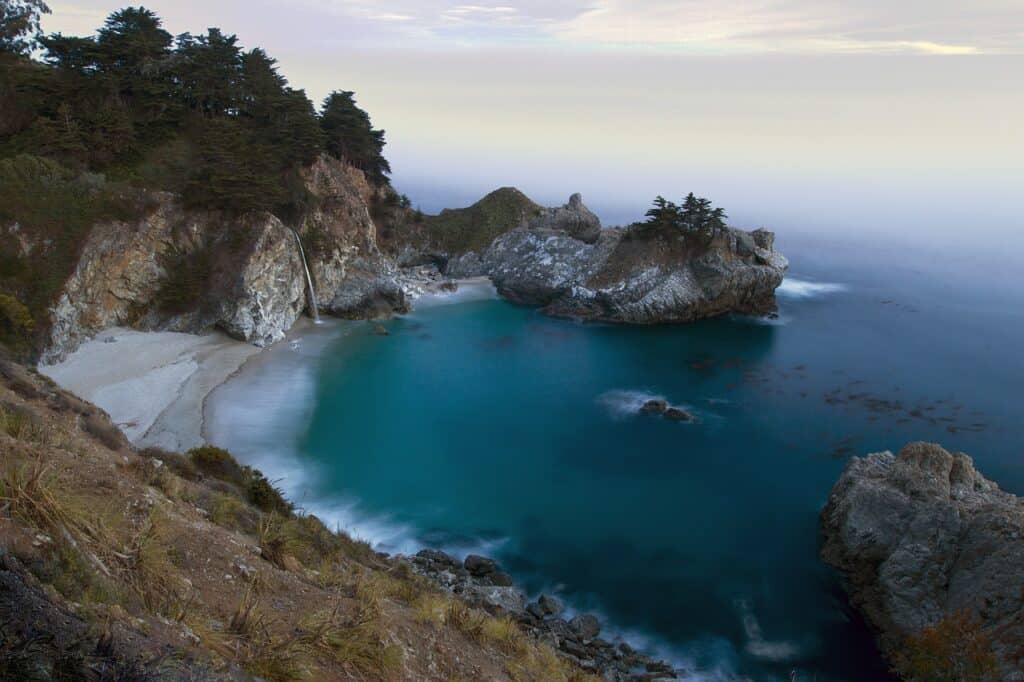
Introduction to Florence Marina State Park
As an avid traveler and nature enthusiast, I am always on the lookout for hidden gems that offer a unique and unforgettable experience. One such gem that I recently discovered is Florence Marina State Park in Georgia. Nestled along the banks of the Chattahoochee River, this state park is a true haven for outdoor enthusiasts and those seeking a tranquil escape from the hustle and bustle of everyday life.
Location and Amenities of Florence Marina State Park
Located in the southwestern part of Georgia, Florence Marina State Park offers a picturesque setting with its pristine lakes, lush forests, and breathtaking views of the Chattahoochee River. The park boasts a variety of amenities to ensure a comfortable and enjoyable visit. Campsites with full hook-ups, picnic areas, and a playground are available for visitors to make the most of their stay. Additionally, the park offers clean restroom facilities, a boat ramp, and a marina for those who wish to explore the river.
Activities and Attractions at Florence Marina State Park
Florence Marina State Park offers a plethora of activities and attractions to suit every interest and age group. Nature lovers can embark on scenic hikes along the park’s well-maintained trails, where they can spot native wildlife and marvel at the beauty of the
surrounding flora. For those who prefer water-based activities, the park provides excellent fishing and boating opportunities. Cast your line into the river and try your luck at reeling in a variety of fish species, or rent a canoe or kayak to explore the waterways at your own pace.
Camping Options at Florence Marina State Park
For those seeking an immersive outdoor experience, Florence Marina State Park offers a range of camping options. Whether you prefer a tent or an RV, the park provides spacious and well-maintained campsites with full hook-ups and amenities such as fire rings and picnic tables. Fall asleep under a blanket of stars and wake up to the soothing sounds of nature surrounding you. Camping at Florence Marina State Park is a truly rejuvenating experience that allows you to disconnect from the modern world and reconnect with the beauty of the natural environment.
Hiking and Nature Trails at Florence Marina State Park
One of the highlights of Florence Marina State Park is its extensive network of hiking and nature trails. Lace up your hiking boots and set out on an adventure through the park’s diverse landscapes. The trails range in difficulty, catering to both beginners and seasoned hikers. As you traverse the paths, you will encounter ancient trees, vibrant wildflowers, and perhaps even catch a glimpse of elusive wildlife. Don’t forget to bring your camera along, as the views along the trails are simply breathtaking.
Fishing and Boating Opportunities at Florence Marina State Park
For fishing enthusiasts, Florence Marina State Park is a dream come true. The park offers excellent opportunities to cast your line and reel in a variety of fish species. Whether you prefer to fish from the riverbank or take your boat out onto the water, you are sure to have a rewarding experience. The Chattahoochee River is teeming with bass, catfish, and crappie, providing ample opportunities for a successful fishing trip. If boating is more your style, the park’s boat ramp and marina make it easy to launch your vessel and explore the river at your leisure.
Wildlife and Birdwatching at Florence Marina State Park
For nature enthusiasts and birdwatchers, Florence Marina State Park is a haven. The park is home to a diverse range of wildlife, including deer, squirrels, and various bird species. Grab your binoculars and head out on a birdwatching adventure along the park’s trails. Keep an eye out for colorful warblers, majestic hawks, and graceful herons as they go about their daily activities. The tranquility of the park provides the perfect setting to observe and appreciate the wonders of nature.
History and Cultural Significance of Florence Marina State Park
Aside from its natural beauty, Florence Marina State Park also holds historical and cultural significance. The park is located near the site of an old Native American settlement and was once a hub for river trading. Visitors can explore the remnants of this rich history and gain a deeper understanding of the area’s cultural heritage. The park is also a popular destination
for those interested in Georgia’s history and offers educational programs and exhibits that showcase the region’s past.
Tips for Visiting Florence Marina State Park
To make the most of your visit to Florence Marina State Park, here are a few tips to keep in mind:
- Plan your visit during the spring or fall when the weather is mild and the park is less crowded.
- Don’t forget to pack sunscreen, insect repellent, and comfortable outdoor clothing.
- Make a reservation for camping to ensure you secure a spot, especially during peak season.
- Bring your fishing gear and a cooler to store your catch of the day.
- Take advantage of the park’s educational programs and guided tours to learn more about the area’s history and wildlife.
Conclusion: Why Florence Marina State Park is a Hidden Gem in Georgia
In conclusion, Florence Marina State Park is a hidden gem in Georgia that offers a wealth of natural beauty, recreational activities, and cultural significance. Whether you are an outdoor enthusiast, history buff, or simply seeking a peaceful escape, this park has something to offer everyone. From its stunning hiking trails and excellent fishing opportunities to its rich history and diverse wildlife, Florence Marina State Park is truly a treasure waiting to be discovered. So, pack your bags, embark on an adventure, and experience the wonders of this hidden gem for yourself.
CTA: Plan your visit to Florence Marina State Park today and uncover the beauty and serenity of this hidden gem in Georgia.
